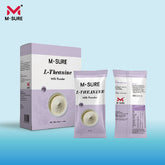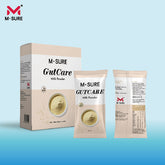Core Principles of a Healthy Diet
by
BiotechAusway
22 Jun 2025
Balanced Variety
A nutritious diet begins with variety. Aim to:
-
Consume 12 or more types of food daily, and 25+ types weekly for comprehensive nutrition.
-
Increase intake of:
-
Whole grains such as brown rice, oats, and barley.
-
Dark-colored vegetables, making up at least 50% of your total vegetable intake.
-
Fruits, aiming for 200–350g per day.
-
Aquatic products, like fish and shellfish, aiming for 300–500g per week.
-
Energy Balance Control
To support a healthy weight and metabolic function:
-
Avoid excessive intake of high-fat, high-salt, and high-sugar foods.
-
Ensure your daily calorie intake is less than your energy expenditure.
-
Prioritize foods with high nutrient density to meet your vitamin and mineral needs without excess calories.
Optimal Food Choices
Anti-Aging Foods
Certain foods can support cellular health and slow signs of aging:
-
Dark-colored produce (e.g., purple cabbage, blueberries): Rich in anthocyanins and vitamin C, they help combat oxidative stress.
-
Diverse protein sources (e.g., fish, legumes, nuts): Linked to a 66% reduction in hypertension risk and support healthy aging.
-
Flaxseeds and chia seeds: Packed with omega-3 fatty acids, these enhance skin hydration by 23%.
Globally Recognized Healthy Foods
Highlighting some of the world’s healthiest foods:
-
Vegetable: Broccoli – high in vitamins C and K.
-
Fruits: Lemons and strawberries – excellent sources of antioxidants.
-
Legume: Tofu – provides plant-based protein and calcium.
-
Grain: Whole oats – a high-fiber grain for digestive and cardiovascular health.
Key Dietary Habits
Scientific Cooking
-
Wash vegetables thoroughly to reduce pesticide and dirt residue.
-
Minimize oil and salt during cooking to preserve nutrients and avoid harmful compounds.
-
Drink broth before meals to aid digestion.
-
Hydrate upon waking to stimulate your metabolism.
Regular Meals
-
Breakfast should provide 25–30% of daily energy intake, ideally combining whole grains and protein.
-
Dinner should be eaten before 9:00 PM to support digestion and sleep quality.
Nutrition for Specific Groups
Children and Adolescents
-
Limit snacks to less than 10% of total daily energy.
-
Prioritize dairy, fruits, and unsalted nuts to support growth.
Elderly
-
Emphasize digestible proteins like tofu and fish to help prevent muscle loss.
Individuals with Chronic Conditions
-
Diabetes: Choose low-GI foods like oats and brown rice to manage blood sugar and reduce complications.
-
Cardiovascular Disease: Include onions (rich in flavonoids) and tomatoes (source of lycopene) for heart protection.
Hydration Guidelines
-
Drink according to thirst – pale yellow urine is a good indicator of proper hydration.
-
Avoid excessive water intake, which can lead to water toxicity.
Top Recommended Diet: The Mediterranean Diet
Recognized as the #1 healthiest diet globally for 8 consecutive years, the Mediterranean Diet emphasizes:
-
Plant-based foods
-
Fish and seafood
-
Olive oil as the primary fat source






